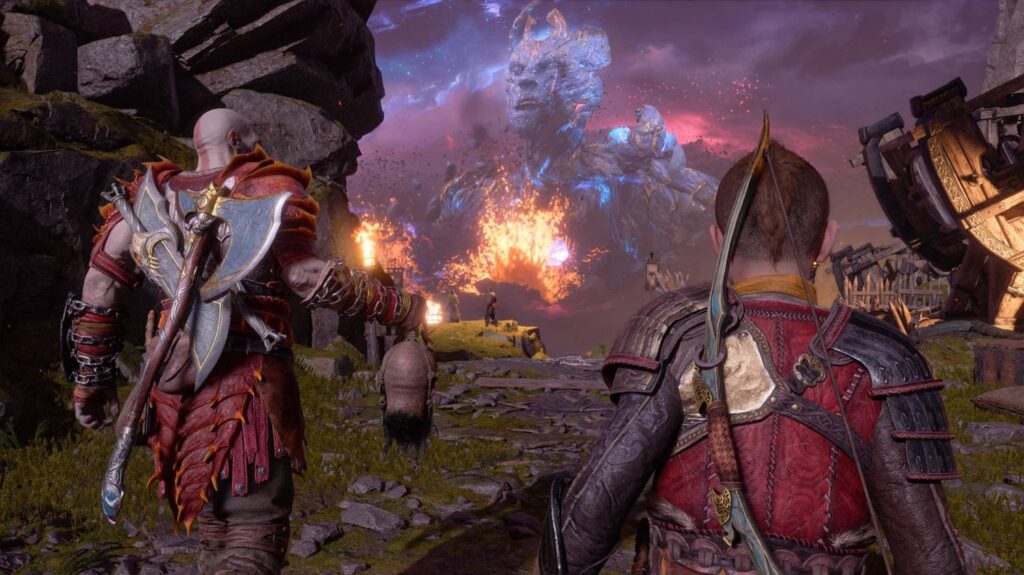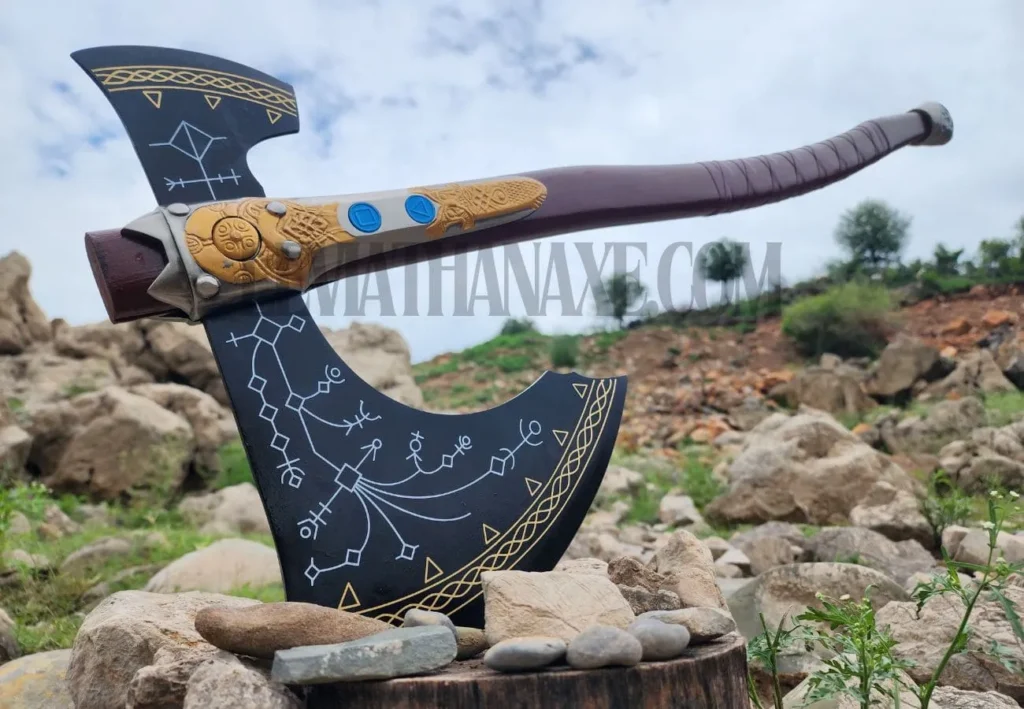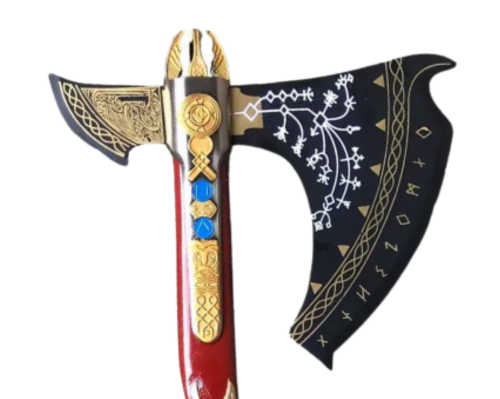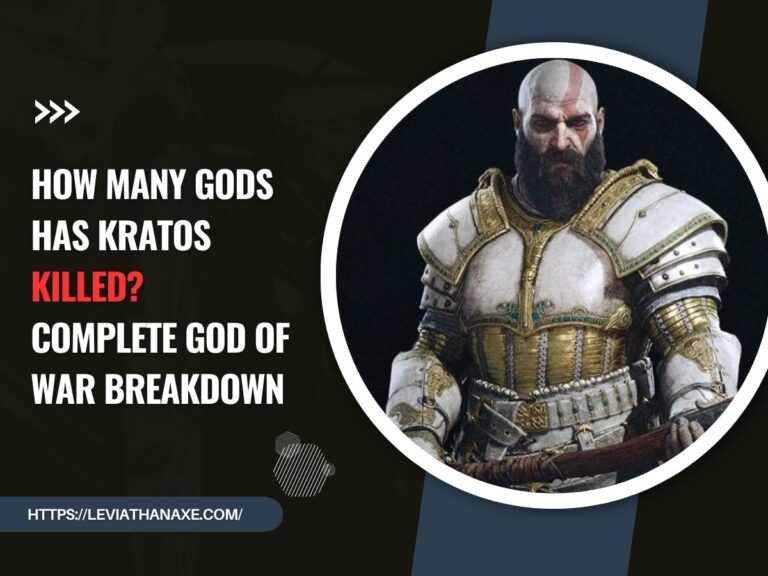The History of God of War: From Mythology to Modern Masterpiece
The “God of War” franchise is a titan in the gaming world, standing tall among the most iconic titles in history. Loved for its gripping storytelling, brutal combat, and breathtaking visuals, the series has captivated millions of players since its debut.
At its heart is Kratos, a Greek demigod turned Norse adventurer, whose adventures have taken gamers through mythological landscapes filled with gods, wars, and redemption.
Let’s explore the chronological history of the God of War series, unpack its major story arcs, and understand why the franchise has achieved legendary status.

A Chronological Outline of the God of War Series
The “God of War” franchise has spanned decades, starting on the PlayStation 2 and evolving into a blockbuster franchise with entries on the PlayStation Portable, PlayStation 3, PlayStation 4, and PlayStation 5. Here’s a breakdown of its key releases:
PlayStation 2 Era
- God of War (2005): The series debuted on the PS2, introducing Kratos, the ruthless Spartan warrior, as he embarked on a quest to defeat Ares, the Greek god of war. The game’s blend of hack-and-slash combat, puzzles, and stunning mythological set pieces made it an instant classic.
- God of War II (2007): The sequel expanded on the original with improved visuals, larger-than-life bosses, and a continuation of Kratos’ vengeance-fueled story. Here, Kratos defied Zeus himself, leading to one of the series’ most infamous cliffhangers.
PlayStation Portable Era
- God of War: Chains of Olympus (2008): This PSP title took players back to an earlier chapter of Kratos’ story, focusing on his servitude to the gods. Despite being on a handheld device, it managed to deliver console-quality gameplay and visuals.
- God of War: Ghost of Sparta (2010): Another PSP title, this game explored Kratos’ relationship with his brother Deimos, providing more backstory while maintaining the action-packed gameplay the series was known for.
PlayStation 3 Era
- God of War III (2010): The PS3 finale to the Greek mythology arc delivered cinematic visuals and jaw-dropping boss battles. The story climaxed with Kratos seeking vengeance against Zeus and all of Olympus, culminating in an epic showdown.
- God of War: Ascension (2013): Serving as a prequel, this entry explored Kratos’ life before the events of the first game. It introduced multiplayer gameplay for the first time, but its narrative impact was less significant compared to the core trilogy.
PlayStation 4 and PlayStation 5 Era
- God of War (2018): This soft reboot reimagined the series with a new setting, Norse mythology, and a more mature tone. Players were introduced to Atreus, Kratos’ son, as they embarked on a deeply emotional father-son journey. Its over-the-shoulder camera and refined combat marked a bold evolution for the franchise.
- God of War Ragnarök (2022): The PS5 entry continued Kratos and Atreus’ Norse saga, exploring themes of fate, family, and sacrifice. Its stunning visuals and ambitious storytelling cemented its place as a modern masterpiece.
Key Story Arcs in the God of War Franchise
The God of War series can be divided into two major eras, each representing a distinct mythological setting and stage in Kratos’ character development.
Also Read How Many Gods Has Kratos Killed?
The Greek Mythology Era
Kratos’ tale begins in Ancient Greece, where he serves as a brutal warrior before becoming ensnared by the gods. Driven by vengeance and tragedy, Kratos’ quest unfolds across three main themes:
- Vengeance: After being tricked by Ares into killing his family, Kratos seeks revenge, leading to his eventual fight against the entire Greek pantheon.
- Power and Loss: The Greek arc explores how Kratos gains unimaginable power through his defiance but loses his humanity along the way.
- The Fall of Olympus: Ultimately, Kratos destroys the Greek gods in his unrelenting quest for vengeance, leaving a legacy of chaos in his wake.
The Norse Mythology Era
The rebooted saga shifts to the realms of Norse mythology. This era focuses on Kratos grappling with his past and discovering his role as a father:
- Fatherhood: Kratos mentors Atreus while reckoning with his own failings as a father and husband.
- Fate and Destiny: This arc is rich with foreshadowing, as characters like Odin and Thor loom large in Kratos’ destiny.
- Legacy: The Norse saga intertwines Kratos’ personal growth with the epic events of Ragnarök, showing a softened yet battle-hardened protagonist.

Major Characters and Their Importance
Kratos
The protagonist of the series, Kratos is the embodiment of rage and redemption. From a vengeful Spartan general to a weary father, his transformation drives the emotional core of the franchise.
Atreus
Kratos’ son, introduced in the 2018 reboot, brings a fresh dynamic to the series. Also revealed to be Loki, Atreus’ connections to Norse mythology add layers of intrigue.
Zeus
The king of the Greek gods and Kratos’ father, Zeus plays a significant role as both an antagonist and a representation of Kratos’ inner struggles with power.
Odin and Thor
Key antagonists in the Norse saga, Odin and Thor personify the challenges Kratos and Atreus face as they confront their destinies.
Evolution of Gameplay, Graphics, and Weapons
Since its debut, the series has continually pushed the boundaries of gaming technology:
- Gameplay: The earlier titles focused on fast-paced hack-and-slash mechanics, while later installments introduced deeper RPG elements and strategy.
- Graphics: Each generation brought visual innovations, from the awe-inspiring set pieces of “God of War III” to the photorealistic environments in “God of War Ragnarök.”
- Weapons: Kratos’ arsenal has evolved from iconic blades like the Blades of Chaos and the Blades of Athena to additions like the Leviathan Axe—a frost-powered tool that became a fan favorite.

Cultural Impact and the Franchise’s Popularity
The God of War series has become a cultural phenomenon for several reasons:
- Cinematic Storytelling: The games are often compared to epic films, blending emotional depth with larger-than-life action.
- Mythological Fascination: By weaving together Greek and Norse myths, the franchise taps into humanity’s enduring fascination with ancient legends.
- Memorable Characters: Kratos’ complex personality and relationships make him a beloved and enduring character in gaming.
- Merchandising: Fans have embraced collectibles and replicas, such as Kratos’ Leviathan Axe, as well as action figures, statues, and clothing.
A Legacy Tied to Its Loyal Fan Community
The enduring success of the God of War franchise would not have been possible without its passionate fanbase. From YouTube creators analyzing storylines to cosplayers bringing characters to life, the series has inspired countless tributes.
Beyond its sales figures and awards, God of War’s legacy lies in its ability to forge deep connections with those who play its games. As Kratos’ story continues, one thing is certain, the God of War franchise will remain a treasured piece of gaming history for years to come.

